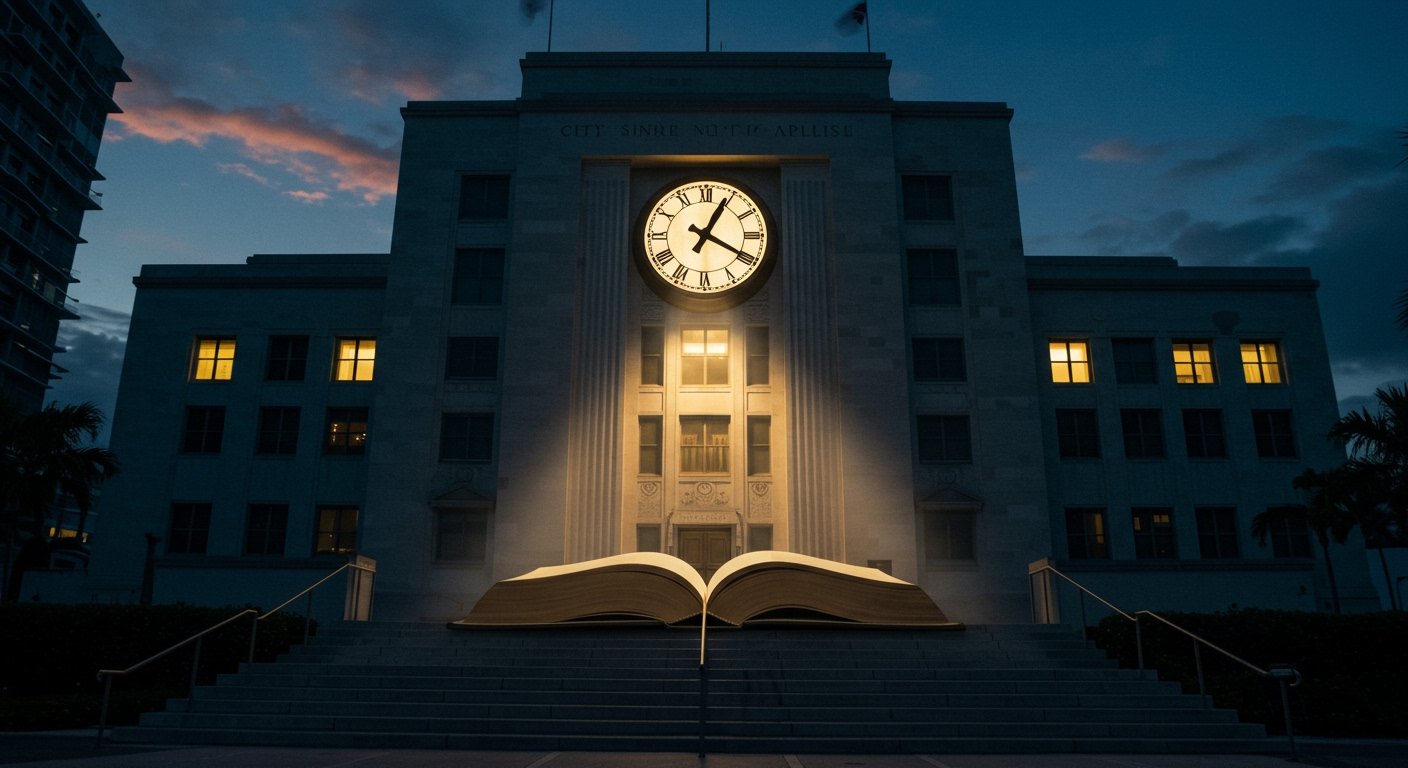Miami, Florida – A significant legislative maneuver is underway within the Miami City Commission that could fundamentally alter the city’s electoral calendar and potentially extend the tenure of its current mayor.
A proposal is set for a crucial vote that aims to shift municipal elections from their traditional timing in odd-numbered years to coincide with state and federal general elections held in even-numbered years. Proponents argue this alignment is a sensible reform designed to boost citizen participation by consolidating voting dates.
However, the measure carries substantial political implications, particularly for Mayor Francis Suárez, a prominent Cuban-American politician nearing his term limit. If the proposal passes and withstands legal challenges, it could effectively grant Mayor Suárez an additional year in office beyond his current term’s scheduled conclusion.
Understanding the Proposed Change
The core of the proposal involves a straightforward, yet impactful, date change. Currently, city elections in Miami-Dade County are scheduled independently in odd-numbered years. The measure before the City Commission seeks to cancel the city elections currently planned for November 2025. In their place, the next municipal elections would be rescheduled for November 2026, aligning them with the national general election cycle.
The stated rationale behind this shift centers on increasing voter turnout. Supporters contend that holding local elections concurrently with high-profile state and presidential races will draw significantly more residents to the polls who might otherwise overlook a standalone municipal election. This, they argue, would result in a more representative outcome for city leadership and ballot initiatives.
Implications for Leadership Tenure
While presented as a reform to enhance democratic participation, the proposal has ignited debate over its potential impact on current officeholders, most notably Mayor Francis Suárez. Mayor Suárez is serving what is expected to be his final term under existing rules, being close to his term limit.
The rescheduling of the 2025 election to 2026 means that all officials elected in the previous cycle, including the mayor, would remain in their positions for an extra year beyond their originally anticipated term lengths. Critics view this potential extension not as a byproduct of election reform, but rather as a primary motivation – a tactic for officials to prolong their time in power. It is noteworthy that the idea was initially promoted by Mayor Suárez himself, further fueling this perception among opponents.
Legal Scrutiny and State Intervention
The path for this proposal is far from clear, despite its potential passage by the City Commission. It faces significant legal scrutiny and is expected to be reviewed in court.
The legal challenge centers on whether the City Commission has the unilateral authority to make such a fundamental change to the election schedule and, implicitly, extend terms of office, or if this power rests with the citizens through a vote. This question has already reached state authorities.
Florida Attorney General James Uthmeier has weighed in on the matter, issuing an opinion stating that, under state law, such a change fundamentally requires a vote by the citizens themselves, not just approval by the local governing body. This opinion introduces substantial doubt about the legality of the proposal if enacted solely by the City Commission.
Public Opinion and Political Dynamics
The proposal has elicited a mixed response from the public and various political factions within Miami. Supporters point to the over 4,000 citizens who have reportedly signed petitions endorsing the election date change, viewing it as a positive step for democratic engagement.
However, the opposition is vocal, casting the measure as a self-serving political maneuver by entrenched officials. The debate pits the abstract goal of higher voter turnout against the tangible consequence of extending current officeholders’ terms without a public mandate through an election on the original date.
The upcoming vote by the Miami City Commission is therefore highly anticipated, not just for its procedural outcome but for the political statement it will make regarding how the city prioritizes reform versus the appearance of political expediency. Even if the commission approves the measure, its ultimate fate will likely hinge on the ensuing legal battles, potentially culminating in a court decision that could uphold or strike down the change based on interpretations of city and state law.
The Broader Context
The discussion in Miami mirrors similar debates occurring in municipalities across the United States regarding the optimal timing for local elections. Advocates for aligning local votes with general elections often cite increased voter turnout as a key benefit, potentially bringing a wider demographic to local issues.
Conversely, critics express concerns that local issues and candidates can be overshadowed by the intense focus and large campaign spending of state and federal races. There are also procedural and logistical challenges involved in managing consolidated ballots and campaigns.
Conclusion
The proposal to shift Miami’s municipal elections to even-numbered years represents a pivotal moment for the city’s political structure. While framed as a means to boost citizen participation, its direct consequence of potentially extending terms for officials, including Mayor Francis Suárez, has made it a subject of intense controversy and legal uncertainty.
With the Miami City Commission set to vote, and the Florida Attorney General having issued an opinion suggesting the need for a citizen vote, the path forward is fraught with challenges. The outcome will depend not only on the commission’s decision but also on the navigating of legal obstacles and potentially court intervention, ultimately determining the timeline for Miami’s next electoral contest and the duration of its current leadership’s term. The process highlights the complex interplay between legislative action, legal interpretation, and public will in shaping local governance.





